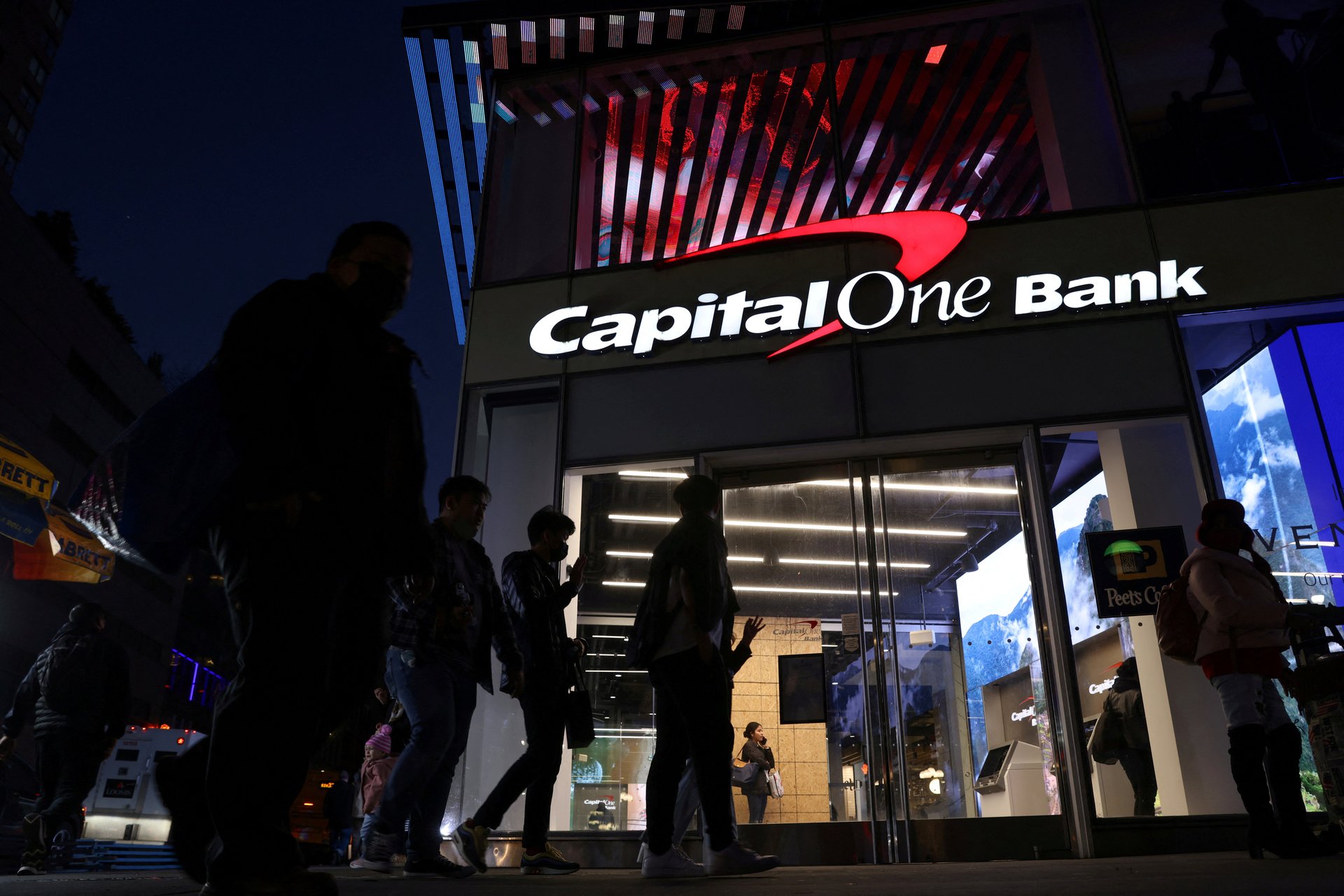Capital One is buying Discover for $35 billion. Here's what to know and what comes next
Capital One plans to acquire Discover for $35.3 billion. Here's what it means for the credit card industry and for consumers

Capital One announced Monday that it is acquiring the credit card company Discover in an all-stock deal valued at $35.3 billion. Combined, the two companies would form the largest credit card company in the U.S. by loan volume, according to Bloomberg.
Suggested Reading
This also marks the largest merger of the year so far, surpassing the tech design company Synopsys’s $35 billion acquisition of software developer Ansys.
Related Content
“Our acquisition of Discover is a singular opportunity to bring together two very successful companies with complementary capabilities and franchises, and to build a payments network that can compete with the largest payments networks and payments companies,” Capital One CEO Richard Fairbank said in a press release.
What the deal means for Capital One and Discover
The deal gives Capital One control of and access to revenue made by Discover’s payment network comprised of 70 million merchant acceptance points across the globe.
Discover charges merchants in its network a fee for every transaction. In the the fourth quarter ending Dec. 31, Discover’s payment services volume grew 17% to $98 billion.
Capital One plans to switch some of its credit cards to the Discover network, the Wall Street Journal reported.
Discover stock was up about 14% in afternoon trading Tuesday following news of the deal late Monday. Capital One stock was largely steady.
What the deal means for the credit card industry
The deal could shake up the credit card and payment network industry, currently led by a duopoly made up of Visa and Mastercard. American Express is a distant third leader in the sector.
“This acquisition adds scale and investment, enabling the Discover network to be more competitive with the largest payments networks and payments companies,” Capitol One said in its announcement.
The two companies would form the largest credit card issuer by outstanding loan balances. Together, they have $257 billion in outstanding credit card loans, MarketWatch reported. In comparison, the country’s largest bank, JPMorgan Chase, has $211 billion.
What the deal means for consumers
If completed, the deal would leave consumers with fewer options in the marketplace at the same time that they’re dealing with higher debt and interest rates.
In the fourth quarter of 2023, credit card balances increased by $50 billion to $1.3 trillion, according to the Federal Reserve. The average bank credit card interest rates reached a record high of 21.5% in November 2023.
What happens next
The deal is expected to close in late 2024 or early 2025, depending on regulatory and shareholder approvals at both companies.
Its currently unclear if regulators will approve the merger.
“The deal also poses massive anti-trust concerns, given the vertical integration of Capital One’s credit card lending with Discover’s credit card network,” National Community Reinvestment Coalition president and CEO Jesse Van Tol told the AP.
The deal by the numbers
Under the terms of the deal, Discover shareholders receive 1.0192 Capital One shares for each of their Discover shares. This represents a premium of 27% based on Discover’s closing price of $110.49 on Feb. 16.
After closing the deal, Capital One shareholders would own 60% of the merged company, while Discover shareholder would own about 40%.